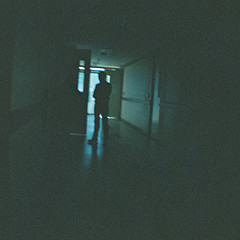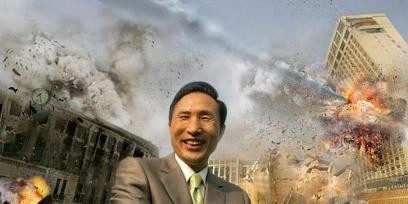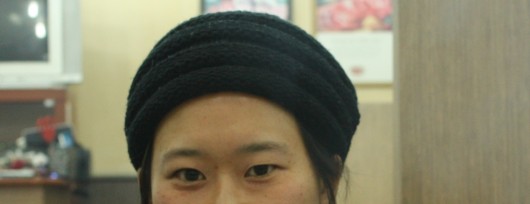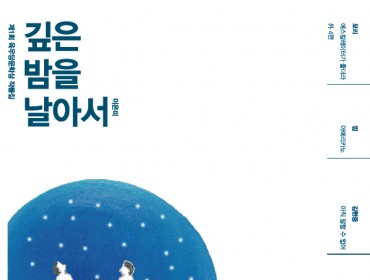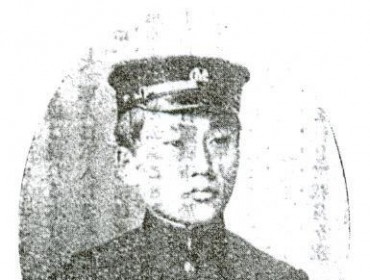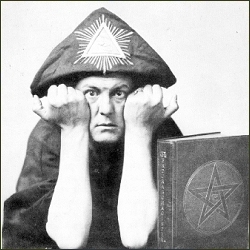By John Kay
Part 1
Oh Young Taek; nut-brown, stooped with age yet with a full-head of black hair; Five feet 7 inches in his stockinged feet; a resident of Hannam-dong, Seoul. A connoisseur of cigars, tax dodges, room salons and screen golf. A self-made man with a trip to the Philippines in the pipeline but with something on his mind, journeys to Seoul station; the taxi driver impolite and disgruntled about something no one would ever fathom; with a big 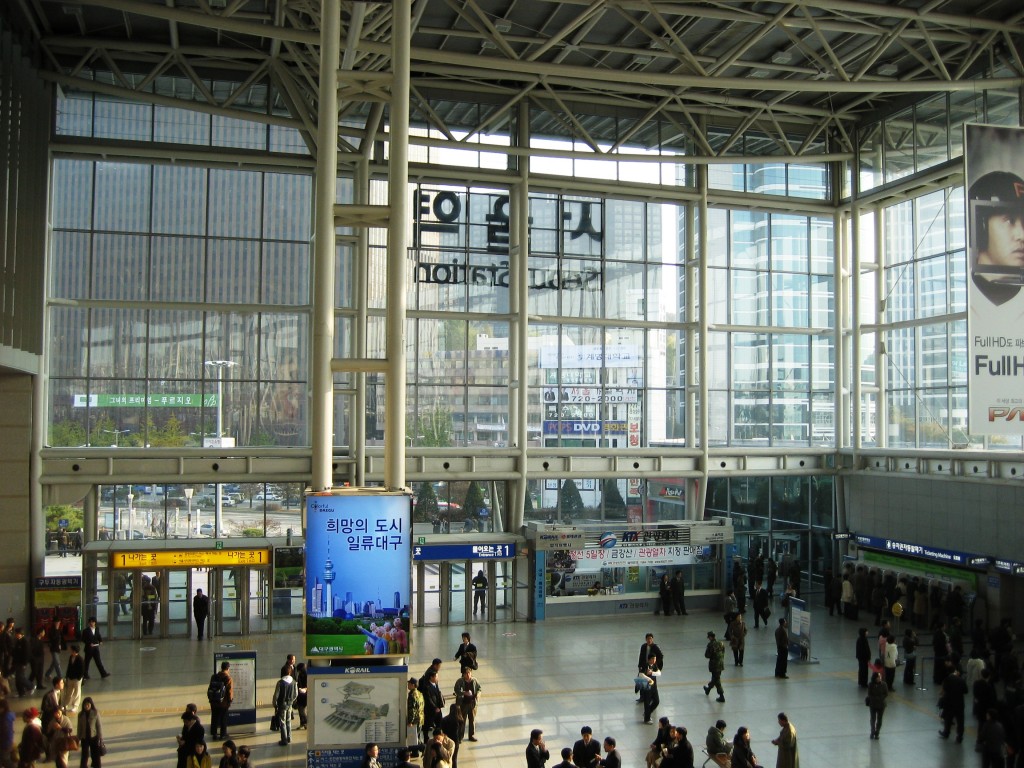 shiny pate and crooked spectacles dropped Oh off in front of the old station. That historical relic, that old girl; it looked as old and as rundown as Oh. Boarded up and no longer operational; now almost forgotten, like the derelicts and drunks, the broken, the browbeaten and the mad, camped in its shadows. Oh weaved his way through the street sleepers toward the twin escalators, which eased him into a colossal, clamshell shaped structure, all glass and gleaming steel. Oh assumed this was the new station or the aliens’ mother ship. The marble-smooth, meticulously clean concourse garnished with arrivals and departures.
shiny pate and crooked spectacles dropped Oh off in front of the old station. That historical relic, that old girl; it looked as old and as rundown as Oh. Boarded up and no longer operational; now almost forgotten, like the derelicts and drunks, the broken, the browbeaten and the mad, camped in its shadows. Oh weaved his way through the street sleepers toward the twin escalators, which eased him into a colossal, clamshell shaped structure, all glass and gleaming steel. Oh assumed this was the new station or the aliens’ mother ship. The marble-smooth, meticulously clean concourse garnished with arrivals and departures.
Everything was normal and every day, nothing out of place but the new station; well, first Oh hadn’t been there before. Two, there were just too many people, foreigners as well. Though he didn’t see them as potential assassins or renegade seekers of justice, they just added to Oh’s sense of dislocation. He joined the shortest queue for the ticket counter, not because it was the shortest but because the young woman behind the counter reminded him of his granddaughter. As Oh waited in line he kept tap, tap, tapping the breast pocket of his shirt to make sure the letter was safe. With his ticket bought Oh made his slow shuffle way to the toilet. One of the things that exasperated him most about old age was this constant, almost infantile need to go and empty his bowel and bladder; what felt like every half hour.
All this action and whatnot had shook his guts up. Maybe it was the heat? Maybe it was receiving the letter? Oh bought some tissues, luckily found a cubicle empty, got in fast and bolted the door. The tissues open, trousers round his ankles, Oh squatted down and let rip. The release and the relief; followed closely by a gurgly, brassy, farty water music all his own. As Oh started to wipe himself clean he heard a muttering and a scratching; then the muttering; then the scratching. When the muttering voice fell silent, Oh tried to listen for movement. When the scratching started up again he anxiously looked about at the cubicle walls, pulled his trousers up and wondered whether this was where they would come for him; whether this was where he would die.
He tried to remember how many of the other cubicles were occupied when he came in. Were there many using the urinals? He wasn’t sure. He tried to rationalize; if someone, someone with a grievance (real or otherwise); if someone from his past or some disgruntled employee say, wanted to do him in, would they target him for a sinister round of unintelligible muttering and fevered, animalistic scratching, from the other side of a cubicle in a train station toilet? 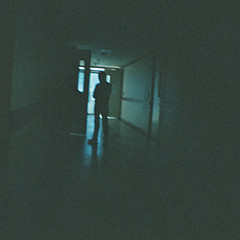
“Of course not, that’s it!” Oh laughed out loud, and the spell had been broken.
“There’s no way I’m going to die ignominiously in here, in this monstrosity of a train station, on the stinky, cold tiles with toilet paper stuck all over my head, like butterflies feeding on a watermelon, and my blood flowing this way and that: no way!”
He flushed the toilet, opened the door, had a quick look out and left. He glanced in the direction of the cubicles and the urinals: all were empty.
On the train the carriage was sparsely populated. He rather wished there were more people about. The train, a high speed joint venture with the French, moved south through paddy fields of the central belt at 300 km an hour. He looked out the window, and after tapping at the breast pocket of his shirt a few times took out the letter.
Dear Oh I held off writing for a while now, thinking I was going daft or senile; that the early stages of Alzheimer’s were nobbling at my brain. First I thought there was nothing the matter; when Kim died I cursed him, thought what a bloody fool way to go, just typical of Kim to be hit by a taxi. You know what he was like. When I heard the news I didn’t think anything of it; just Kim dying daft and unlucky, just as he entered the national police all those years ago. But Song falling out of his apartment window, that wasn’t right. I know you didn’t see eye to eye, but he was a good policeman; a disciplined but opinionated man. A heart attack I could foresee. Cancer, well, I thought with him still chain smoking away, something would have to give; but falling like a rag doll from the window of his apartment to horror the fuck out of an Ajumma and some elementary school students on their way home. No, that’s when I started thinking something was up. And Oh, something is up. I got a call from Bak’s wife; they had to put him in the nuthouse. They caught him running by the side of the river bollock naked, covered in blood, eyes as big as saucers, sweat coming off him in sheets, screaming and shouting that they were after him: that he was going to hell. The blood was from the cuts on his wrists. I went to see his wife to find out more and offer my condolences. She said he’d received a letter the other day, and from then on he gradually spiralled out of control. He burnt the letter as soon as he’d read it, and she couldn’t get him to tell her what it was about or who sent it. Oh, I’m telling you, I know it’s about 4.14, and we’re next, unless we do something about it. 4.14, Oh, you remember? How could you forget? I feel I’m being followed. I kept getting odd phone calls, when I answer they put the phone down. Or there’d be someone there but they wouldn’t say a word. I tried to find out who called, but they withheld the number. Last week my son and his family came to visit. When we went to see them to their car, we found the tyres slashed, the wing mirrors ripped off and the license plate removed. Then one morning I woke up, opened the front door to retrieve the paper and I found the door had been painted red. Yesterday I got a letter too. Oh, we must meet; I don’t want to use the phone in case they’re listening in. Meet me on Wednesday at 9am at Tapgol Park. Yours, NamThe train stopped briefly at Cheonan-Asan, but he wasn’t looking at the passengers getting on and off. The station was new, and all around it what had until recently been farmland, was now steadily, inevitably becoming another district of the city. Oh usually loved the look of these half built apartment buildings. He thought of them affectionately as ruins of some imaginary, failed city-state; perhaps, a little too much Calvino with his whiskey of an evening. Their incompleteness, so much more pleasing than the identikit, lego-block nature of the finished product. His wife had thought 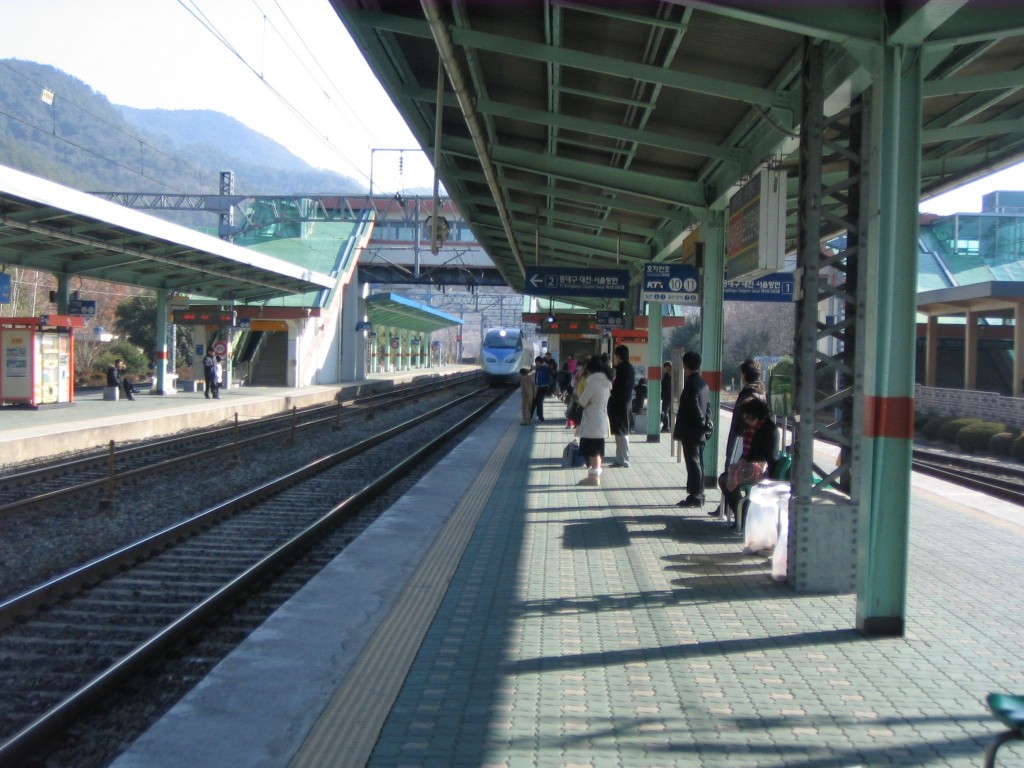 this just another of his idiosyncrasies, and spread her tolerance over it like a balm. Only today, the sight of these dozen or so half finished apartment buildings, filled him not with wonder, but dread. Like a cancer, he thought, same-ist shoebox, barrack-like anthills. Their unpainted, window-less bulk; their dull, grey concrete struts and foundations, exposed like hundred year old elephant hide, gave him a deep sense of foreboding. Luckily the train set off again and the unfinished apartment buildings of Cheonan-Asan stayed where they were.
this just another of his idiosyncrasies, and spread her tolerance over it like a balm. Only today, the sight of these dozen or so half finished apartment buildings, filled him not with wonder, but dread. Like a cancer, he thought, same-ist shoebox, barrack-like anthills. Their unpainted, window-less bulk; their dull, grey concrete struts and foundations, exposed like hundred year old elephant hide, gave him a deep sense of foreboding. Luckily the train set off again and the unfinished apartment buildings of Cheonan-Asan stayed where they were.
As the train picked up speed, salt water leaked from the corner of Oh’s almond shaped eyes.
“It seems I’m the only one left now, Nam.
A bored train employee pushed a trolley laden with snacks; cookies, dried squid, kimbab and drinks down the carriage. Oh stopped the guy and bought a can of beer. Then slowly but steadily Oh tore the letter into long jagged strips. When he’d finished he had a nice heap of ripped paper before him. He looked at it a while then opened the beer, took a strip of paper, placed it in his mouth, took a swig of the beer and swallowed. He continued until all the pile had gone. Then he raised the can;
“To Nam, may you rest in peace. Thanks for the warning. I would’ve gone to Tapgol park too, if I hadn’t heard on the radio at breakfast that you’d been hit by a train at Dongdaemun station. Which was just three stops from Tapgol Park. Someone is out to get us. Four down and one to go.”
The barber talked on and on, his voice as smooth as the cream he lathered my face with. Reflected in the mirror the barber’s face resembles that of a teenage boy; one of the last to be dispatched. Lying by the ditch the boy kept looking over his shoulder; he didn’t move, cry or plead like the others; he just kept looking over his shoulder at me. The barber shop is hot and the barber’s voice gets louder and louder. He starts to shave my face; all is going well, when suddenly the razor nicks my cheek. The barber keeps on talking but I can’t hear a word. I can feel the blood start to trickle down my cheek. The barber hands me the razor and I start to shave myself. Again everything is going well, when I nick my cheek a second time, then a third and a fourth. The blood is really starting to flow now but I can’t stop.
Oh wakes up breathing hard and sweating like a pig. The dream lingers a while and it takes him sometime before he remembers where he is. He looks out the window and recognizes the outskirts of the city and the factories by the river. The train station’s in the same place, but they’ve spent some serious money doing it up. Outside on the concourse a thick-set man in his mid-to late fifties, dressed like a Buddhist monk tap, tap, tapped two blocks of wood together. He chanted a sutra up over the taxis, the pigeons, the homeless stranded drinkers bickering over nothing, and the determined heads of passengers heading this way and that. Oh slotted a coin in a machine, outside the shoeshine man’s booth and sipped on a cup of coffee.
He watched the monk from a bench, not yet over-ran by the homeless: the station’s patron saints. A pigeon pecked at the shoe of a ram-shackled guy, curled up under the tourist map of the town and all its charms. He never moved once during the whole assault. The coffee done with, Oh approached the monk, who had a crescent shaped scar along the entire length of the right side of his face, from his eyebrow to his chin. 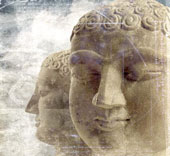
“Seunim, is there any way of getting rid of bad luck?”
The monk stopped banging his two pieces of wood together and looked Oh up and down, in the customary local manner; that always left the person under scrutiny feeling that they had failed to meet some unknown yet essential criterion.
The monk asked for specifics but Oh just looked at the pigeons and two young, baby-faced policemen trying to get a taxi driver to move on. Korean society being the most Confucianist of all Asian societies, the two officers had everything stacked against them. The monk suggested visiting a temple and offering up prayers. Or even better renouncing the world and living the rest of his life in step with the teaching of the Buddha. Oh thanked the monk, whether he really was a monk or not (you could never be too sure) put a 10 thousand won note in his collection box and shuffled off.
Round the corner workmen were drilling into the pavement, tearing up bricks and chunks of concrete; bright yellow drainage pipes lay beside them in a neat pile. Oh slipped into the alleys and lanes of the market and found a seat at a table in a small eatery. His ears still ringing from the workmen’s drilling he ordered, and looked out the window.
“When this round is over and I can sleep forever will I meet them there? I did a bad thing, an unforgivable thing that you can barely imagine. I look about this place now, these lanes and alleys, the faces and businesses here abouts and I think that what happened wasn’t just in another time but another country as well.”
He decided to take the monk’s advice and go to a temple. On the bus a young housewife gave him her seat. After that he sat hemmed in by the crotches and shopping bags of strangers, and the chattering, gibbering antics of school kids on their way home. It was some walk up to the temple proper from where the bus stopped. Up passed old girls selling chestnuts and figs; up passed the restaurants there to feed and fleece the tourists; up passed the visitor centre and the half finished museum; up passed the ticket booth and the large map of the national park, he walked like the old man he was.
At the main temple he told a pudgy-faced young monk with a bucket full of food waste that he urgently needed to speak to the head monk. Pudgy stumbled quickly off with the bucket, leaving Oh breathing in its ripe fug, which lingered in the air like a fart. Believers went in and out of the temple’s main door, which was agape like an idiot’s mouth between bites at dinner. The heady reek of incense wafted steadily out. Again everything moved to the sound of someone deftly (and surely within the edicts plotted out in the tripitaka) tap, tap, tapping two pieces of varnished wood together.
Pudgy came back without the bucket, but with two surprises for Oh; he was a she and there was no head monk. Nuns ran the temple; short and squat, tall and skinny, gaunt or ruddy faced as farm girls; these grey-clad, shaven headed women ran the temple, and it was to their spiritual leader that Oh was going to have to bear his sullied soul. He balked at the very idea but there wasn’t any other way.
She was twice the size as Oh; big-boned for his wiry; in her mid-fifties and in loose fitting grey, traditional, baggy trousers and collar-less jacket, to his old man in a rumpled suit. Her eyes were as hard as diamonds with which she seemed to see right down into his very core. She towered over him as they walked and came out into a small, empty courtyard. In a one-storey building facing the courtyard, sat at either side of a small table they faced each other. What he now recognized as a young nun brought in a pot of tea and two cups on a tray. While pouring the tea the head nun asked him what he wanted.
“Is there any way to rectify a wrong, something done in the past a person might regret?” 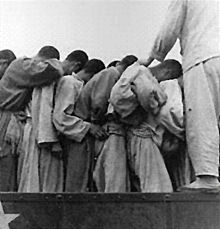
“What do you mean?”
“It was during the war, I was in the national police. I did things; I witnessed things: terrible, unforgivable things.”
“Whatever happened, it is within your power to redeem yourself. Things happen in wartime. War is mankind’s sin. There is another temple on the other side of the mountain. In the morning you will make your way there. I will write a letter for the head monk. Perhaps there you can start to make amends. Now, if you’ll follow me.”
Part 2 Next issue 21 June on 3WM
______________________________________________________________________
John Peter Kay started writing in earnest back in 1996 at art school. Since 2003 he’s taken as his inspiration the sounds, sights, smells, tastes and incidents of life in South Korea. He has a blog where he has been known to wax lyrical about riding the bus, demonic hagwon directors, his mother-in-law, alcoholic brethren, and the joys and tribulations of being a fully paid up husband and father. He can be contacted at jessiebellinakay@gmail.com
 Print This Post
Print This Post



